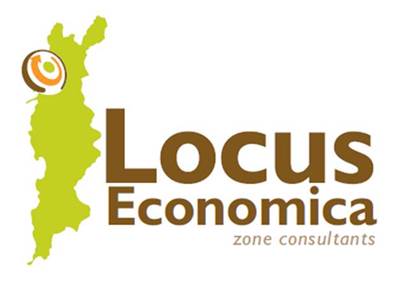Ethiopia
Ethiopia has the fifth fastest growing economy in the world, experiencing between 8%-11% annual growth for more than a decade. However, the economy still heavily relies on agriculture, which is only slightly surpassed by the services sector (41.4% against 43% respectively). Its exports are predominantly agricultural, with coffee accounting for 27% of the total exports.
Foreign direct investment (FDI) has been increasing exponentially since 2012 and reached US$2.168 billion in 2015. Though private land ownership is heavily restricted by the constitution, the government has recently privatized several state enterprises and improved business regulations, which have encouraged FDI.
Ethiopia is developing a new industrial parks program with Locus Economica assistance and Locus’ work has resulted in the adoption of the Industrial Parks Proclamation No. 886/2015. The new industrial parks improve upon the country’s previous industrial zones by giving the Ethiopian Investment Commission power to simplify and streamline regulatory procedures within the parks.
As of June 2019, 5 public and 2 private industrial parks have been built, and 8 more are under construction by IPDC throughout the country. Together, the 5 operational IPDC parks host 36 companies providing at least 26,000 jobs, and the 2 private parks (Eastern Industrial Zone and Jimma/Huajian Park) supply a further 18,000 jobs. In terms of IPDC’s parks, Hawassa Industrial Park was developed at a cost of $250 million, opened in 2017 and employs nearly 24,000 workers. Mekelle Industrial Zone cost $100 million to build, was inaugurated 2017 and is expected to provide 20,000 jobs once fully occupied. So far it hosts 3 major plants, representing a further $118 million in private FDI and having supplied the park’s first 700 jobs. Adama Industrial Park, which cost $140 million to build, is expected to provide 25,000 local jobs. Kilinto Industrial Park has attracted 10 foreign companies. Dire Dawa Industrial Park, which has to date cost $158 million to develop, has 15 pre-built factory sheds, is nearing completion, and is expected to create 40,000 direct and indirect jobs over time. Bahir Dar Industrial Park, which was recently opened, is for its part projected to create 20,000 jobs.
Meanwhile the private, Chinese-built Eastern Industrial Zone hosts 98 companies and provides nearly 16,000 jobs. China’s Huajian also took over management of Jimma Industrial Park in June 2019. The export-oriented Huajian Shoe Factory for the moment provides 2,000 jobs, but the company has built 9 additional manufacturing sheds for other companies so far, which are expected to host companies employing up to 15,000 workers.




Since 2013, Locus Economica has been working under a World Bank contract to assist the government of Ethiopia with the development of its new Industrial Park program. Specifically, Locus Economica has: Helped draft a new Industrial Park Proclamation ...